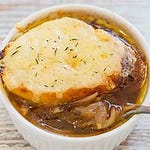Glossary of Key Terms
Beaver Hat Market: The European demand for beaver pelts, primarily for the production of felted hats, which were a significant fashion statement and status symbol from the 16th to 19th centuries.
Ozark Plateau: The geographical region, rich in rivers, streams, and forests, where the Osage Indians lived and where beavers were abundant.
Pelts: The skins of furbearing animals, especially those processed for their fur. In this context, primarily beaver skins.
Sinew: A cord or band of fibrous tissue that connects muscle to bone or bone to bone; used by the Osage for crafting traps.
Felted Underfur: The dense, soft undercoat of the beaver, characterized by microscopic barbs, which allowed the fibers to interlock when processed, creating a durable and water-resistant felt ideal for hats.
Pre-Contact: The period before significant interaction between Indigenous peoples and European explorers/settlers, generally referring to before the late 17th century for the Osage in this context.
Regional Trade Networks: Established systems of exchange between different Indigenous tribes, occurring before extensive European contact.
Jacques Marquette and Louis Jolliet: French explorers who journeyed down the Mississippi River in 1673, marking early European contact with tribes in the region, including the Osage.
Fort Orleans: A French trading post established in the 1720s near modern-day Brunswick, Missouri, serving as a hub for trade with the Osage and other tribes.
Wah’Kon-Tah: A concept in Osage spiritual tradition representing the Great Mystery or spiritual force that pervades the natural world; often associated with giving thanks for successful hunts.
Semi-nomadic: A lifestyle characterized by periodic movement within a defined territory, often based on seasonal resources or trade opportunities, as practiced by the Osage.






